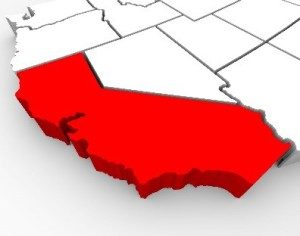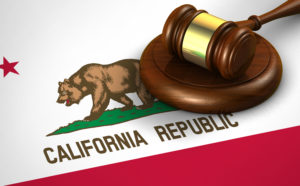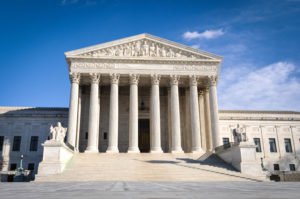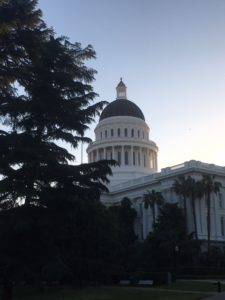Georgia's New Online Sales Tax Bill: What You Need To Know

While we wait for the U.S. Supreme Court’s decision regarding online sales tax, states are continuing to take matters into their own hands. Georgia recently passed House Bill 61, legislation requiring online retailers that make at least $250,000 or 200 sales a year in the state to collect sales tax or send "tax due" notices to customers spending a minimum of $500 on their websites.
Georgia’s Online Sales Tax Bill & The Supreme Court
Georgia’s new online sales tax law will go into effect January 1, 2019, however depending on how the Supreme Court rules on the Wayfair v. South Dakota case, Georgia's new legislation may be blocked. That doesn't necessarily mean the end of the law, though.
As Bloomberg explains, "Either way, the requirements might put Georgia in line for a lawsuit of its own... if the Supreme Court upholds the physical presence standard, Georgia’s collection requirement would remain constitutionally unenforceable, but dealers meeting either of the thresholds would be subject to the notice and reporting requirements."Read more
CALIFORNIA AND MARKET BASED SOURCING-ATTEMPTED CLARIFICATION?

Market-Based Sourcing of revenue for services as related to income tax apportionment purposes is becoming a trend among states. As our economy becomes more service intensive, determining how to properly source service and intangible revenue is vital to the states. According to Bloomberg BNA, California’s latest draft rules for market-based sourcing of sales of intangibles are confusing and could affect defense contractors, asset managers, and R&D service companies.
On May 18, 2018, the California Franchise Tax Board (FTB) held its third Interested Parties Meeting (IPM) regarding proposed amendments to California Code Regulations, Title 18 (CCR), Section 25136-2. This section of the CA Regulations describe the provisions of market-based sourcing rules for California taxpayers.
What You Need To Know About California's SB 993 & Why We're Against It

Sales tax is a major revenue source for many states, including California, which is why its legislature has been looking for additional ways to collect fees under the ‘sales tax’ umbrella.
For years, State Senator Bob Hertzberg has been trying to extend the state’s reach by imposing sales tax on services. Although 2015’s Senate Bill 8 didn’t pass, there’s another bill recently heard in the Senate Governance and Finance Committee: Senate Bill 993 (SB 993).
How Senate Bill 993 Affects Sales Tax
While SB 993 might help increase California’s revenue, it comes at quite a cost. This legislation would create a new sales tax on services like legal and accounting, further complicating an already intricate state tax code.
CalCPA makes several key points against this new sales tax legislation:
1. Ultimately, the sales tax burden will fall to consumers.
In order to compensate for the additional expense, businesses will increase their rates. This will happen in companies across the board – not just those providing legal or accounting services. Here are a couple of examples from CalCPA:
Consumers might not be taxed on the food they buy, but the cost of produce at the grocery store will likely increase since the grocery store overhead has gone up to include more costly accounting and tax services…or a small business that elects to have a retirement plan for its employees is required by law to meet certain audit requirements, which requires the use of an external CPA. Or they may need an audit or review as part of their application for a bank loan. Either the business absorbs the added tax on the service they are required to get, passes the cost to their consumers or elects to no longer offer a retirement plan to employees or opt to not pursue a planned expansion.Read more
FOCUS ON WISCONSIN

This month we travel north to the Badger State of Wisconsin, a Midwestern U.S. state with coastlines on two Great Lakes (Michigan and Superior) and an interior of forests and farms. Several beer companies are based in Milwaukee, and many offer brewery tours. The state is known as “America’s Dairyland” because it is one of the nation’s leading dairy producers, particularly famous for its cheese. Manufacturing, especially paper products, information technology (IT), cranberries, and tourism are also major contributions to the state’s economy.
Wisconsin’s geography is diverse having been greatly impacted by glaciers during the Ice Age with the exception of the Driftless Area. The Northern Highland and Western Upland along with a part of the Central Plain occupies the western part of the state, with lowlands stretching to the shore of Lake Michigan. Wisconsin is second to Michigan in the length of its Great Lakes Coastline.
Top Predictions You Need to Know: Wayfair v. South Dakota Online Sales Tax Case

As we wait for a decision in the Wayfair v. South Dakota Supreme Court Case regarding online sales tax, we thought it would be fun to take a look at possible outcomes depending on how the Court rules.
Our Opinion on the Online Sales Tax Case
Back in March we shared our predictions on how the online sales tax case's outcome would affect businesses.
What if the Supreme Court rules against South Dakota? We're back where we started with Quill remaining the physical presence standard and states passing various legislation that's either unconstitutional (and likely not upheld) or that requires onerous reporting.
What if the Supreme Court rules in favor of South Dakota? This would effectively reverse Quill, potentially leading to economic nexus becoming a viable threshold for creating nexus, companies selling more than a certain dollar amount needing to collect sales tax in many more states, retroactive sales taxes and more.
Read more details about our predictions in this blog post.
Other Opinions on the Online Sales Tax Case
Here are a few additional predictions we agree would likely come into play.Read more
SUPPORT FOR WOMEN ON PUBLIC BOARDS- CA SENATE BILL 826

Last week, I attended NAWBO-California’s annual Propel Your Business conference in Sacramento. I try to attend this conference every year because the dynamic and energy of the women business owners in the room is contagious! It reminds me of just a few reasons why I’m so proud to own my business.
One of the key items we discussed this year was California Senate Bill 826 – Corporate Board Gender Diversity, authored by Senators Jackson, Atkins and Leyva (all female senators). In short, SB 826 is a proactive approach to require more women directors on the boards of publicly held companies in California. The state is the 5th largest economy in the world, and as such, should set an example for responsible business globally.
The Latest in Online Sales Tax: Wayfair vs. South Dakota Oral Arguments

Last week the U.S. Supreme Court heard oral arguments in the Wayfair v. South Dakota online sales tax case. While the court’s decision regarding the matter isn’t expected until June, the Justices’ questions in the matter reveal that it’s far from already settled, and they’re divided on whether or not Quill should be overruled.
South Dakota’s Arguments Regarding Quill
South Dakota’s Attorney General Marty Jackley began his statement, "First, our states are losing massive sales tax revenues that we need for education, health care, and infrastructure. Second, our small businesses on Main Street are being harmed because of the unlevel playing field created by Quill, where out-of-state remote sellers are given a price advantage."
In response, Justice Sonia Sotomayor shared her concern that overturning the precedent could create a large number of lawsuits. While South Dakota's 2016 law makes it clear that retailers doing business in the state will not be liable for sales tax due before the law went into effect, not all states have legislation in place to protect online retailers from retroactive sales tax.Read more
FOCUS ON ARKANSAS

This month we travel to the southern state of Arkansas, the Natural State. It is known for its abundant parks and wilderness areas, with terrain encompassing mountains, caves, rivers and hot springs. The rugged Ozarks region in the northwest portion of the state has hiking trails and limestone caves, such as Blanchard Springs Caverns.
The state’s diverse geography varies from mountain ranges from the Ozark and the Ouachita Mountains, which make up the U.S. Interior Highlands, to the densely forested land in the south known as the Arkansas Timberlands, to the eastern lowlands along the Mississippi River and the Arkansas Delta.Read more
Wayfair Files Online Sales Tax Legal Brief: What You Need to Know

If you've been following the online sales tax debate with us, you know the Wayfair v. South Dakota case is going before the U.S. Supreme Court shortly; oral arguments are scheduled for next week (April 17).
In the meantime, Wayfair has filed a legal brief along with two other online retailers: Overstock Inc. and Newegg Inc. Keep reading for a brief summary of their argument for maintaining the Quill ruling from 1992.
Wayfair’s Brief Against Online Sales Tax
While South Dakota is hoping the Supreme Court overturns Quill so that it can collect sales tax from online retailers, major online companies across the country argue it would hurt business nationwide.
As the legal brief filed by online retailers explains, "Sales tax collection at the state level, 'would prove particularly burdensome for smaller and medium-sized retailers that lack internal systems for multi-state tax compliance. Many of the largest internet retailers, meanwhile, already collect the tax at rates approaching traditional bricks-and-mortar sellers.'"Read more
Pennsylvania and the Economic Nexus Bandwagon- No April Fools!

As you know from reading our blogs, multistate tax can be difficult to navigate! When businesses sell their products across state lines, they need to think about whether they have taxable presence, or nexus, in the state and if their products are taxable.
Generally companies establish nexus by having a physical presence in the state. However, several states have recently been pushing the boundaries of defining the physical presence notion in order to generate more revenue. The concept of “economic nexus” is gaining greater momentum.


















